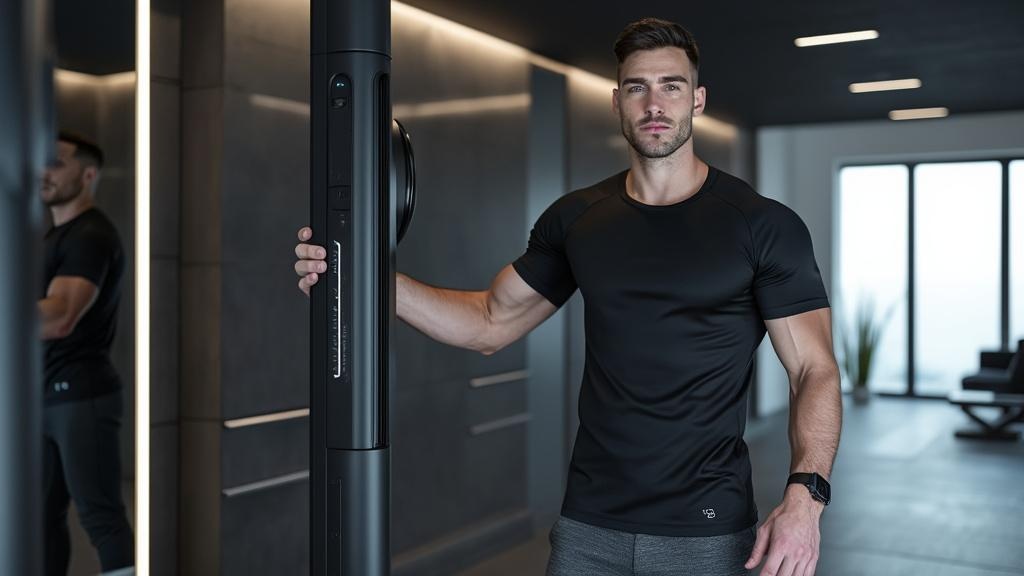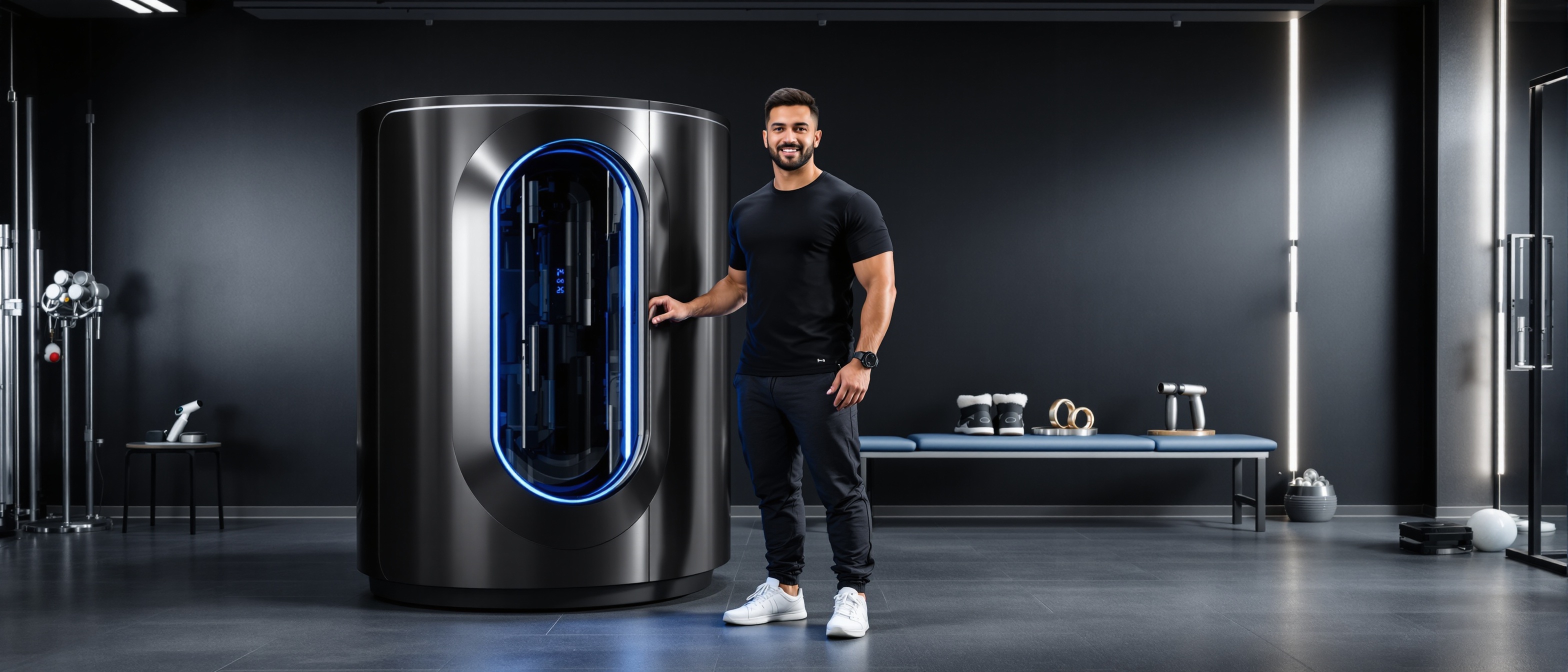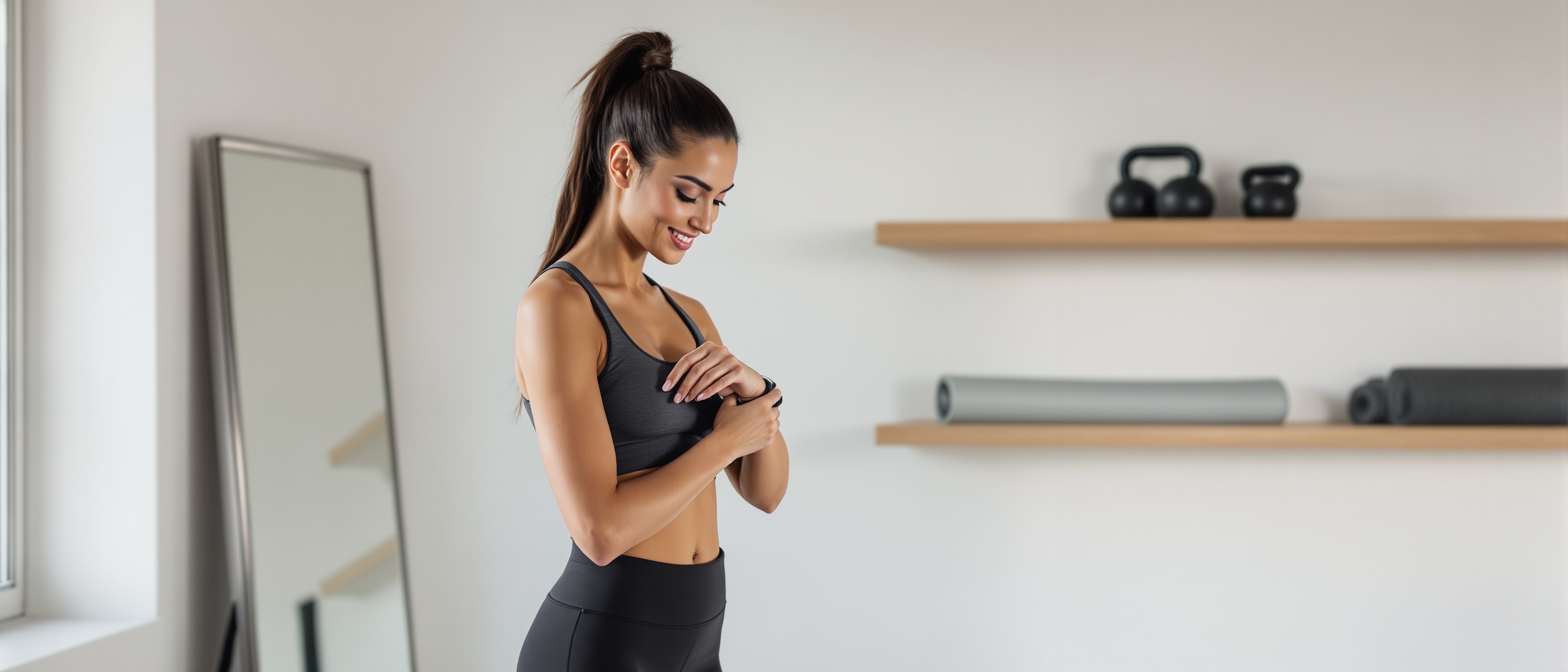I Tested $50K of Smart Gym Gear. Here's the Truth.
Your smart rowing machine just told you to pull harder. Your mirror-gym counted 47 squats and corrected your form twice. Your AI trainer scheduled tomorrow's workout based on how you slept last night.
Welcome to 2025, where your home gym is smarter than most personal trainers—and sometimes more expensive than a used car.
But here's the million-dollar question everyone's asking: Is all this tech actually making you stronger, faster, or just poorer?
I spent weeks diving into the latest smart fitness equipment craze that's got Reddit buzzing and your neighbor's garage looking like NASA mission control. What I found might surprise you—and save you from some seriously expensive buyer's remorse.
Defining Smart Fitness Equipment: What's New in 2025?
Forget everything you thought you knew about "smart" fitness gear. We're not talking about basic step counters or heart rate monitors anymore.
The new generation of connected home gym equipment is playing a completely different game. We're talking about machines that use computer vision to analyze your form in real-time, AI algorithms that adjust resistance based on your muscle fatigue, and platforms that create workouts by studying your sleep patterns, stress levels, and even your menstrual cycle.
Think Tonal's electromagnetic resistance that can dial in precise weight loads. Or Mirror's form analysis that spots if you're favoring your left leg during lunges. Peloton's new Tread that adjusts incline based on your breathing pattern.
But here's what most people miss: the real revolution isn't in the hardware—it's in the data layer underneath.
These machines aren't just tracking what you do. They're building detailed models of how your body responds to different stimuli, then using that information to optimize your next session. It's like having a sports scientist in your basement, except this one never takes a day off and remembers every rep you've ever done.
Sounds impressive, right? But before you start maxing out credit cards…
Key Features: Data, Feedback, and Connectivity
Let's break down what these smart machines actually do—and separate the game-changers from the gimmicks.
Real-Time Form Feedback This is the big one everyone's talking about. Using cameras, sensors, or both, these machines watch you move and provide instant corrections. Imagine doing deadlifts while an AI coach whispers "keep your chest up" exactly when you need to hear it.
The promise? Fewer injuries, better results, faster progress.
The reality? It's complicated.
Personalized Programming Smart equipment learns your patterns. It knows you're stronger on Tuesdays, weaker after stressful days, and that your left shoulder gets cranky during overhead movements. It adjusts accordingly.
This isn't just "beginner, intermediate, advanced" anymore. This is truly individualized programming that evolves with you.
Biometric Integration Your smart gym talks to your wearables, sleep tracker, and smartphone. It knows if you got poor sleep, high stress, or if you're fighting off a cold. Tomorrow's workout gets adjusted before you even think about it.
Some machines even integrate menstrual cycle data to optimize training around hormonal fluctuations. That's next-level personalization.
Virtual Coaching and Community Live classes, on-demand instruction, and social features that make working out at home feel less… well, lonely. You can virtually train alongside friends or compete with strangers across the globe.
But here's where things get interesting—and where you need to pay attention.
Scientific Support: Does Smart Tech Improve Results?
Time for some uncomfortable truth.
After reviewing the latest research, here's what the science actually says about smart fitness equipment: the evidence is weaker than your first week back at the gym.
While multiple market research firms are predicting the smart fitness market will hit $137 billion by 2030, the peer-reviewed research on whether these devices actually improve workout effectiveness or reduce injury risk is… thin.
A comprehensive review in Frontiers in Public Health found that fitness technology mainly improves user engagement and exercise adherence—not necessarily workout quality or results. In other words, smart equipment might keep you consistent, but it won't magically make you stronger.
The form feedback that everyone raves about? Current studies show it can increase motivation and user satisfaction, but there's limited direct evidence it reduces injury rates compared to proper coaching or even basic instruction.
Here's what we do know works:
Personalized programming beats generic plans. Always has, always will. If smart equipment delivers truly customized workouts that adapt to your recovery, goals, and response patterns, that's a legitimate advantage.
Consistency trumps optimization. If the tech features, community aspects, or convenience factors help you work out more regularly, that's probably worth more than perfect form feedback.
Data-driven progression works. Tracking your loads, volumes, and progress over time leads to better results. Smart equipment excels at this.
But here's the catch most companies won't tell you…
Best-Use Cases and Potential Drawbacks
Smart fitness equipment isn't for everyone. And that's okay.
You'll benefit most if you're:
- Training alone frequently and need motivation/accountability
- Experienced enough to recognize when the feedback makes sense
- Committed to a home gym setup long-term
- Someone who thrives on data and progressive tracking
- Looking for programming that adapts to your busy, unpredictable schedule
You might want to think twice if you're:
- A complete beginner who needs hands-on coaching
- Someone who prefers simple, straightforward workouts
- On a tight budget (these systems often require ongoing subscriptions)
- Training for highly specific sports or competitive goals
- The type who gets overwhelmed by too much feedback
The hidden drawbacks nobody talks about:
Subscription creep: That $2,000 machine often comes with a $40/month subscription. Do the math over five years.
Analysis paralysis: Too much data can actually hurt your training. Some people become so focused on metrics they lose sight of how they actually feel.
Tech dependence: When the wifi goes down or the app crashes, some users literally don't know how to work out.
Space and maintenance: These machines are often large, heavy, and require regular software updates. Your home gym becomes an IT project.
The Bottom Line
Smart fitness equipment isn't magic. It's not going to transform a couch potato into an athlete overnight, and it won't replace the fundamental principles of progressive overload, consistency, and proper recovery.
But for the right person, in the right situation, it can be a powerful tool.
The sweet spot seems to be people who are already somewhat experienced with fitness, have the space and budget for a permanent home gym setup, and genuinely benefit from the accountability and programming features.
If you're considering the investment, ask yourself: Am I buying this because I think it'll make me work out, or because I think it'll make my workouts better? The first reason is often valid. The second is usually expensive wishful thinking.
TL;DR: • Smart fitness equipment excels at consistency and motivation, not magic results • Form feedback looks cool but has limited injury prevention research • Personalized programming and data tracking are the real value propositions • Budget for subscriptions—they add up fast • Best for experienced home gym enthusiasts, not beginners • Technology enhances workouts; it doesn't replace fundamentals
The fitness industry will keep pushing new tech as the solution to all your problems. Your job is to stay smart about what actually moves the needle—and what just moves money from your wallet to theirs.
Sometimes the most sophisticated piece of equipment in your home gym should be your own brain.





